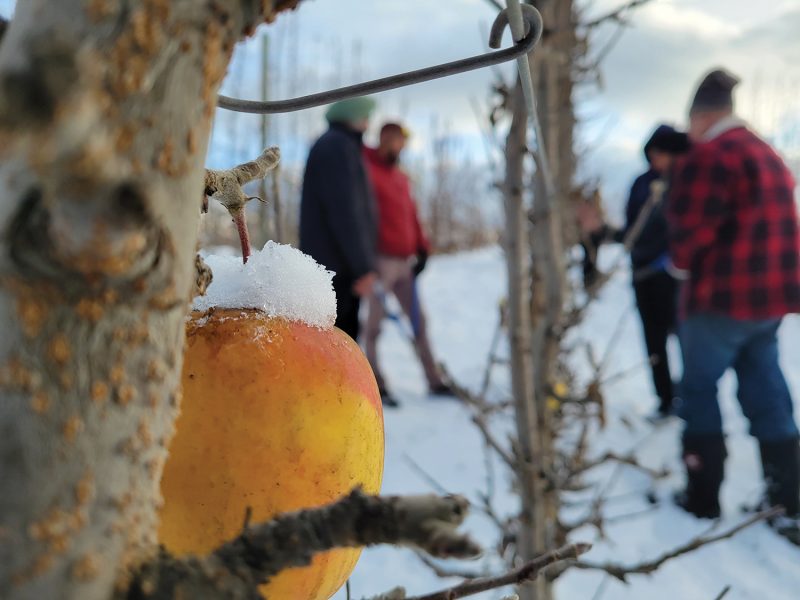BC fruit growers are asking the province to step up and provide financial support following the devastating frost event earlier this month.
Temperatures across the Southern Interior dipped towards -30° Celsius between January 11 and 13, leading to widespread concern for the 2024 crop following depressed market pricing in 2023 for both apples and cherries.
Representatives of the BC Fruit Growers Association have taken the concerns of growers to the BC Agriculture Council, which has been asked to back growers’ requests for support from government, and BCFGA director Deep Brarhas approached the province.
“Brar asked the provincial Minister of Agriculture’s office to engage with the associations and set up a meeting, with the intention of informing the Minister of the threats to our sectors and to get a commitment to explore potential solutions,” BCFGA said in a bulletin to members, January 26. “BCFGA is committed to working with other organizations to have a joint solution to the crop impacts from the recent deep freeze.”
According to the province, as of January 22, notices of loss had been filed by 24 grape growers and nine tree fruit producers. Since many growers are still assessing damages, claims are expected to grow.
Bud samples at research plots indicate that this year’s freeze could be worse than the December 2022 event that killed approximately 29% of vineyard plantings in the region and reduced last year’s crop by 54%.
Short crops will compound the financial losses felt by producers.
Cherry growers saw low returns last year as abundant crops throughout West Coast growing regions overlapped in the market, pushing down prices. BC growers, typically last to market, saw their crop pulled forward and were hit especially hard.
Meanwhile, BC Tree Fruits Cooperative has delayed its first payment to growers, which could increase demand on over-stretched government support programs.
And, to add insult to injury, Alberta Gaming, Liquor and Cannabis moved last week to block all wholesale shipments of wine from Canadian producers, even if such shipments are totally legally compliant.
The move effectively makes Alberta the only province in Canada where consumers must buy local wine alone – primarily fruit wines and mead – if they want to enjoy Canadian wine at all.
Alberta is a major consumer of BC wine, and the border closure will deprive BC producers of an important market at a time when cash flow is paramount to their operations.


 Pitt Meadows ag strategy is action-based
Pitt Meadows ag strategy is action-based